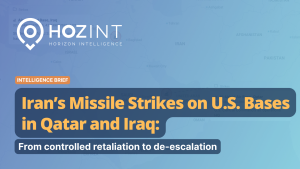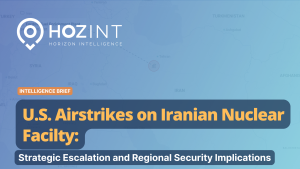In November of 2021, Venezuela’s oil production was reported at 824,000 barrels per day, its highest output in at least 3 years. Despite the huddle evoked by the news, Venezuela’s production during the first quarter of 2022 already shows a decrease of 7% compared to the last quarter of 2021, from 817,000 bpd to 756,000 bpd, and 71% less than what used to be in 2016.
Between November and December of 2021, and after 4 years of world record-breaking hyperinflation and obscure Central Bank (BCV) statistics reporting, Venezuela announced a 7% inflation, following a year of single-digit inter-monthly price increases, officially exiting the hyperinflationary buckle. The liberalization of the currency exchange market in mid-2019 and the subsequent de-facto dollarization of the economy are credited for such results.
In 2021, Venezuela’s GDP was reported at -3%, after a decline of -30% a year earlier. According to the Economic Commission for Latin America and the Caribbean (ECLAC), Venezuela is expected to grow its GDP by 3% in 2022. However, there is wide variation in projection numbers given the current opportunity presented by the sanctions against Russia for its invasion of Ukraine. For example, Credit Suisse considers Venezuela’s GDP could increase by up to 20% in 2022.
On May 17, 2022, the Biden administration lifted the ban on US and European oil companies operating in Venezuela, while allowing Chevron Corporation to negotiate its license with Petróleos de Venezuela, SA (PDVSA). In the same venue, Maduro announced that between 5% and 10% of multiple state-owned companies will be offered in Venezuela’s stock market, in a move to try to boost capitalization.
Analysis
Despite the hype created by the “Chavista propaganda”, the Venezuelan economy under Maduro is far from showing a solid future. What can be seen at the moment in Venezuela are only slight signs of recovery but could represent an ideal opportunity for the Maduro regime to increase its revenue, especially if it can exploit the emerging opportunities left by the massive sanctions against Russia, especially in the energy sector.
Given the current scenario in which the United States is urgently trying to encourage and facilitate Western withdrawal from Russian energy imports, Maduro’s regime is seeking rapid non-credit capitalization and critical infrastructure renewal as top priorities.
But why is the US interested in opening the probability for the Maduro regime to improve its economic situation, when it could boost energy imports from other sources, such as Colombia and Ecuador, just within the region? The Biden administration seems to be trying to get Maduro out of the Russo-Venezuelan convergence of interests, pragmatically creating a decisional scenario in which “what’s bad for Putin’s Russia is good for Maduro’s Venezuela.”
As to other economic recovery indicators such as inflation and GDP, Venezuela is highly dependent on oil exports for economic growth, which it shows to be on the right path since exports increased by 80% in 2021. Despite this, significant recovery will take over 5 years.
What is certain is that Venezuela’s oil sector has the chance of entering a booming phase. The energy sector, especially in the US, is receiving peak investments. During the first quarter of 2022, Berkshire Hathaway increased its shares in Chevron “making the energy stock the conglomerate’s fourth-biggest equity holding.” The move supposed an increase from USD 4.5 billion by the end of 2021 to USD 25.9 billion by the end of March 2022, which is indicating a particularly strong interest in Venezuela’s oil sector.
Forecast
Venezuela is likely to meet and probably surpass economic growth projections for 2022 and forward, mainly driven by oil exports. This is also likely to generate a new spree of public spending, instead of the creation of resilience in other sectors.
Oil investments and assets will increase and remain relatively safe in the near future, but Maduro’s regime is not likely to allow foreign investors to gain stock ownerships over 50%. Also, the level of politicization of institutions and the lack of legal protections against expropriation makes for a precarious situation in the long term, especially if tensions between the Maduro regime and Washington increase.
In the current scenario, the prospect for regime change in Venezuela is lower than in previous years. Despite statements by the Biden administration regarding the easing of sanctions as a means to stimulate dialogue for the eventual celebration of transparent elections, as long as public institutions are controlled by the regime no such scenario is probable.
By Luis Campos Perez, Editor in Chief – Americas Desk at Hozint – Horizon Intelligence




